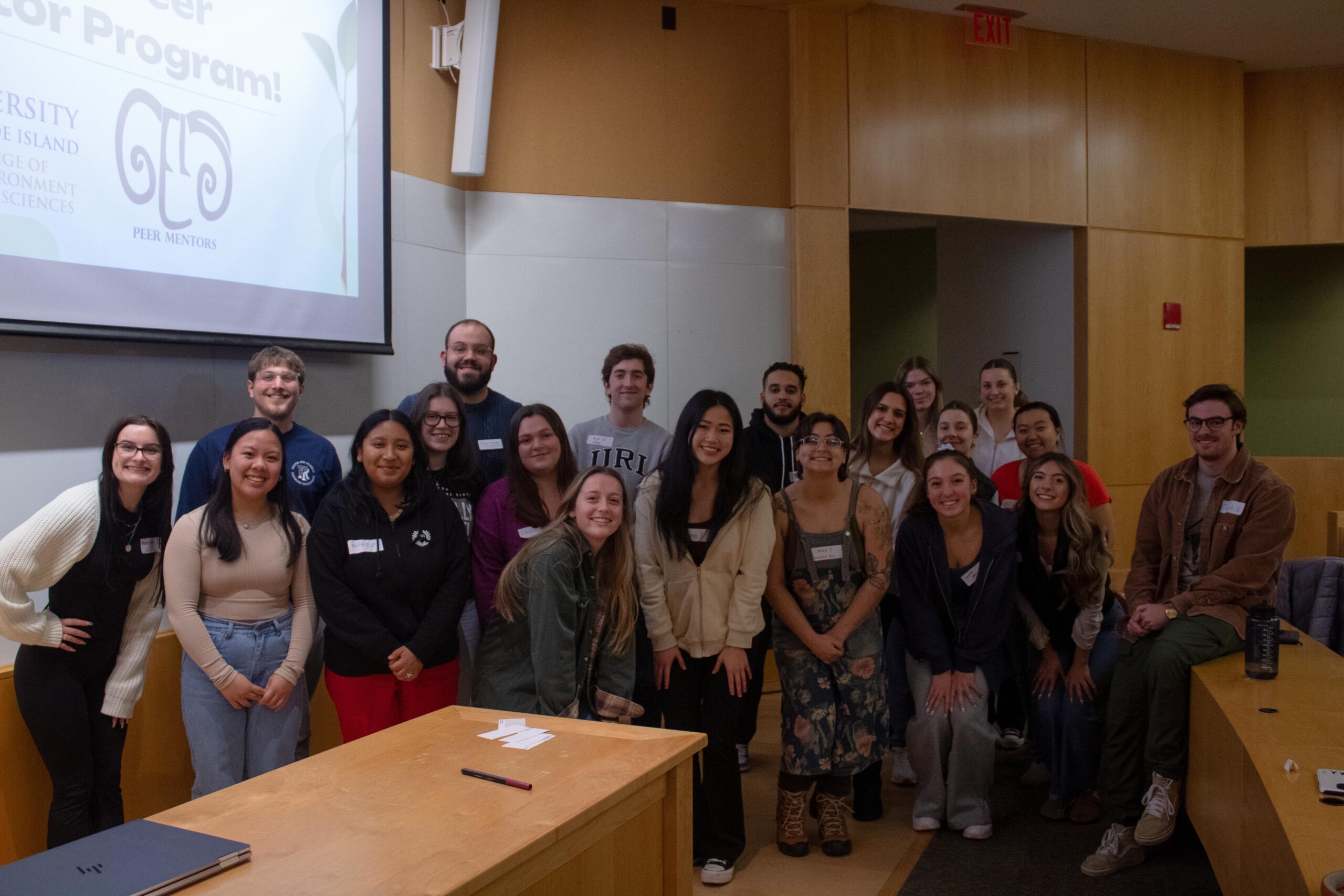On Monday, the College for the Environmental and Life Sciences kickstarted its new Peer Mentor Program with a meet-and-greet event for students.
Open to all majors in the CELS program, the Peer Mentor Program aims to assist first-year and transfer students with coursework, finding research opportunities and finding their community here at the University of Rhode Island. The program director, Academic Advisor for the Office of Academic and Student Affairs Steven Marstjepovic, said he took inspiration from other college peer mentor programs across campus to create a more hands-on and personal program for students.
In the program, there are 20 members with majors representing the diversity of majors in CELS. Each mentor was assigned two to three students each, said Marstjepovic. Unlike other mentor programs at URI, these mentors were trained on campus instead of with an outside organization. He hopes this form of training will make the program more personalized toward the CELS program.
At Monday’s kickstart event, the 50 applicants for the program were invited to meet and mingle with their mentors, other mentors and mentees in the program and professors in CELS.
“[This] will help to build back the community that was lost during the Covid years,” Marstjepovic said.
The goal of this program is to provide new students with the resources they need to be successful CELS students, stay in the program and find a community at URI.
Madelyn Kadra is a third-year Medical Laboratory Sciences major and now a CELS peer mentor. When she was a first-year student, there wasn’t a program like this one offered to her. She hoped that with the introduction of the program, she would be able to make relationships with new students in CELS, inspire more students to become mentors and be a support system in CELS, according to Kadra.
As a mentor, Kadra wants to have weekly coffee dates or talks with her mentees to allow them to ask questions about their classes or the campus in general, Kadra said. She believes that this program will be a great resource and support system for CELS students.
Kadra also mentioned that Marstjepovic was a great choice to organize the program. His caring and enthusiasm for the program are reflected in the mentors in the program, Kadra said. She believes for both mentors and students in the program, this will be a mutually beneficial relationship. She noted that the relationship between mentors in the program was very strong and that they served as a support system for each other as they trained to become mentors.
As the program continues to grow, Marstjepovic and Kadra are hopeful that more group activities will be organized to further create a sense of community for students involved in the program. The biggest goal of the program is to bring back the community, Marstjepovic said. By offering new students a space where they can ask questions and meet new people with similar courses, the program aims to increase the number of students who remain in CELS and create new mentors for future students in the coming years.

